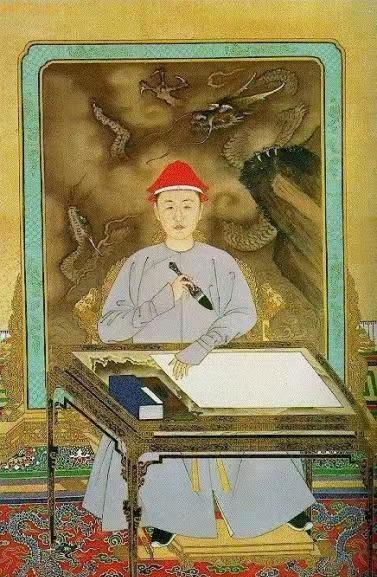The Kangxi Emperor, a Qing Emperor who is quite controversial in the field of historiography and folklore, although people have mixed praise and criticism, it is undeniable that compared with other Qing emperors, the Kangxi Emperor was more tolerant and rational in the face of Western technology. In 1668, the Kangxi Emperor issued an edict announcing the holding of a Chinese and foreign scientific competition in the Forbidden City, and the ministers participating in the competition were Yang Guangxian, who was then the Qin Tianjian, and the Belgian missionary Nan Huairen. The title of the competition was that the two sides tested the movement of the sun's shadow according to their respective techniques, and in the end, Nan Huairen successfully measured a more accurate result with the advanced nature of the Western calendar, and won the competition in one fell swoop.

In the strict Forbidden City, such a unique competition was held, and the ministers who heard the news looked at each other and speculated about the political meaning behind the Kangxi Emperor. Nan Huairen was an important assistant to the famous missionary John Tang, and Tang Ruowang personally met the Shunzhi Emperor at that time as early as the time when the Qing army entered the customs, and then was trusted by Shunzhi and was appointed as the first Qin Tianjian supervisor of the Qing Dynasty. In addition to his sudden ascension to the throne, Tang Ruowang did not forget his mission, and produced the "Shi Constitutional Calendar" on the basis of the Western calendar, and the Shunzhi Emperor was overjoyed after reading it and decided to implement the calendar to the whole country.
In the eyes of Manchu Wenwu, it did not matter if a foreigner was favored by the emperor, but it was intolerable to overthrow the ancestral family law by the law of the foreigner, and the conservative faction immediately besieged the missionary camp led by John Tang, and this struggle between Chinese and Western ideas continued until the young emperor Kangxi ascended the throne.
The strange death of Shunzhi caused a huge power vacuum in the center of the imperial court, and the minister Ao Bai took the opportunity to firmly grasp the power in his hands, and despite Kangxi's obstruction, he openly arrested Tang Ruowang and others in the name of "spreading a cult" and sentenced them to Ling Chi, known in history as "Kangxi Prison". Ao Bai's tyrannical behavior caused the dissatisfaction of many courtiers, and they immediately reported to Empress Xiaozhuang, who had overlooked the world after the Qing army entered the customs, and now issued an edict, severely reprimanding Ao Bai and others, demanding that Tang John Wang's life be spared, but the rest of Tang's subordinates were not so lucky, Li Zubai and others were sentenced to be beheaded, and the rest of the missionaries were exiled for thousands of miles.
A few years later, the Kangxi Emperor began to pro-government, and this clever and decisive young emperor immediately suppressed the Aobai forces after taking power, and even more despite the opposition of the people, he issued an edict to rehabilitate Tang Ruowang and others, restore the "Constitution of the Times" that had been abolished before, and solve the problem of solar chaos caused by the backwardness of ancient law at that time, so that this sensational "Kangxi Calendar Prison" officially came to an end.